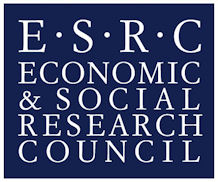The Royal Society invites applications for its international exchanges scheme to stimulate new collaborations within the natural sciences between scientists in the UK and overseas. It will support a one-off visit or bilateral travel but is not intended to support any existing or recent research collaborations.
The scheme covers all areas of the life and physical sciences, including engineering but not clinical medicine.
Both the UK and partner country project leader must have completed a PhD or have experience at an equivalent level, as well as holding a permanent or fixed term contract for the duration of the award at an eligible university or research institute in their country.
Collaborations should be based on a single project and travel can only take place between the UK and the country where the collaborator is based.
The following types of grants are available:
- up to £3,000 for one-off travel lasting up to three months
- up to £6,000 for multiple visits to be completed within one year, including a maximum of £1,000 for consumables
- up to £12,000 for multiple visits to be completed within two years, including a maximum up £2,000 for research expenses
As part of the International Exchanges, the Society now offers additional funding through its Kan Tong Po Fellowships which has been made possible through the generosity of the family of the late Mr Kan Tong Po. The purpose of this scheme is to award Visiting Fellowships to UK or US based scientists to collaborate at the highest level with a Hong Kong based academic, or for Hong Kong based scientists to collaborate with an academic based in either the UK or US.
In addition to the exchange grants, candidates may apply for the Colin Pillinger international exchanges award, which is worth £1,000. This enables the scientists to communicate their research to the general public.
Deadlines on: 17 February 2015, 17 June 2015, 14 October 2015.
For further information go to:
https://royalsociety.org/grants/schemes/international-exchanges/





![logo_en[1]](https://blogs.staffs.ac.uk/research/files/2014/10/logo_en1.gif)








 Sir Isaac Wolfson FRS (1897-1991) was a businessman who distributed most of his fortune to good causes.
Sir Isaac Wolfson FRS (1897-1991) was a businessman who distributed most of his fortune to good causes.